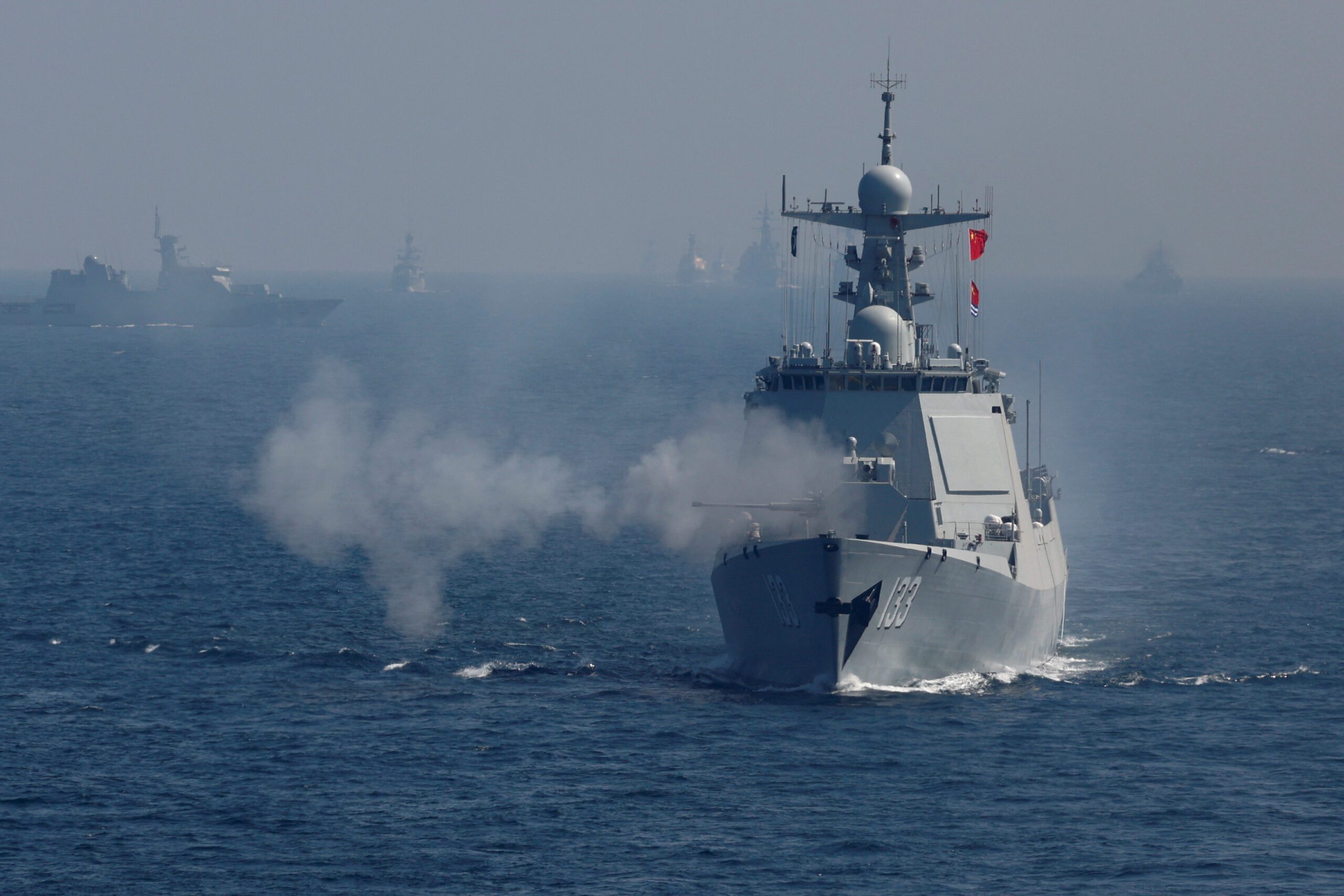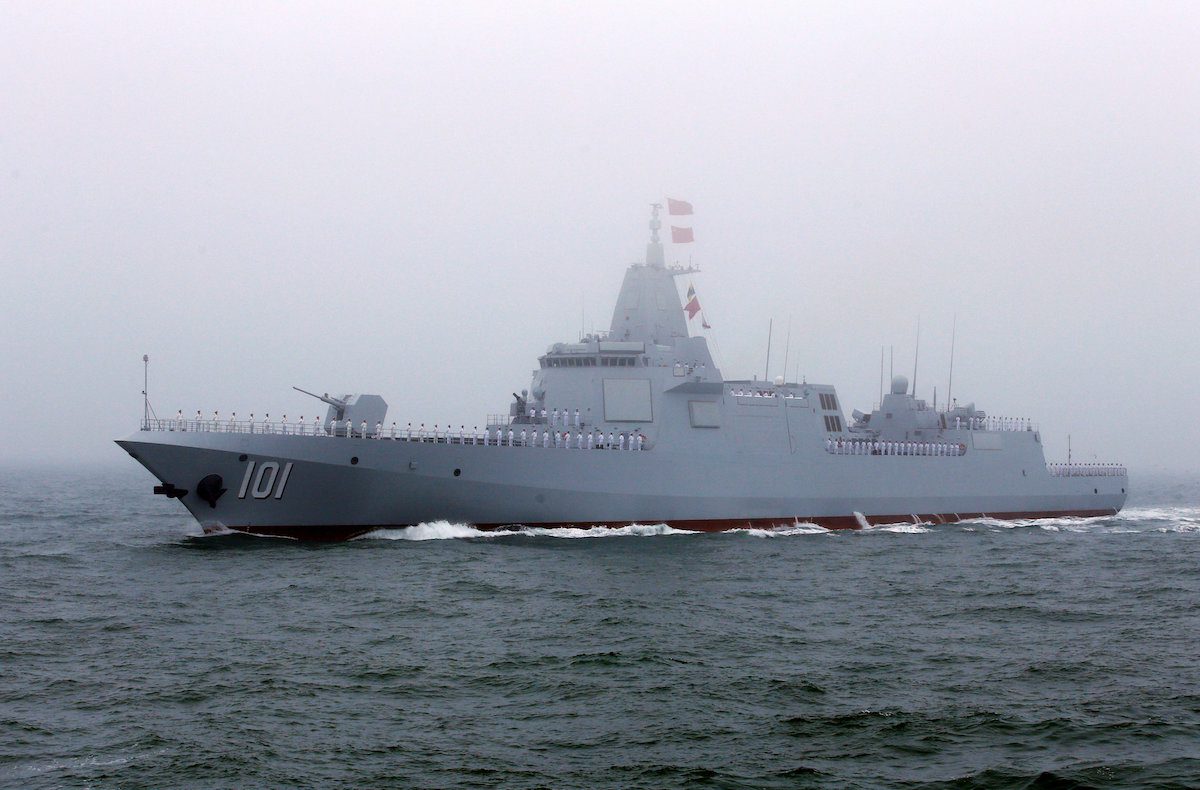By Bloomberg News
Feb 22, 2025 (Bloomberg) –China rejected any suggestion from Australia that it failed to be transparent in conducting live-fire naval drills on Friday and Saturday in international waters in the Tasman Sea.
The exercises sparked concern in Australia and New Zealand, which had earlier dispatched vessels and aircraft to monitor the three Chinese warships involved. The drills caused some commercial airlines to divert flights and drew guarded comments from the prime ministers of the two smaller economies.
Australian Prime Minister Anthony Albanese said on Saturday that China had acted within international law, but that “it would be appropriate to have been given more warning of this potential event taking place.” Australia also undertakes activities in international waters and international airspace, he said.
Australian Foreign Minister Penny Wong pressed her Chinese counterpart Wang Yi to be more transparent about the actions of the ships, the Australian Broadcasting Corp. reported.
When asked about any lack of transparency, Chinese Ministry of Defense spokesman Wu Qian said the Australian side was “completely inconsistent with the facts,” according to a statement on Sunday. He added that Australia had “deliberately hyped it up.”
New Zealand Prime Minister Christopher Luxon had on Saturday echoed the same view as Albanese over the exercises, Radio New Zealand reported. Defence Minister Judith Collins said the New Zealand military had been informed of a second window for live firing by the Chinese on Saturday, according to the report.
The two countries, which have been at odds with Beijing over strategic issues such as tensions in the South China Sea and the Taiwan Strait, are highly dependent on the Asian nation for trade. Albanese was clear in acknowledging the importance of Australia’s trading relationship with China when asked by a reporter if he would be looking at some sort of retaliation over the live-fire drills.
“You do know that most of the trade goes from here to there, not the other way round, and I’ve worked pretty hard to make sure that products including seafood products can get into China,” Albanese said Saturday. He added there are “1-in-4 Australian jobs that depend upon trade and China is our major trading partner.”
China’s military keeps the location of its live-fire drills vague, with a Chinese military reportThursday saying the People’s Liberation Army was conducting such an operation in “a certain sea area.” The operation marks a rare case of such exercises being reported far from Chinese territory, in a sign Beijing is projecting its military power deeper into the Indo-Pacific.
The exercises appear at odds with Chinese President Xi Jinping’s recent efforts to dial down diplomatic tensions with US allies in order to buffer against economic turbulence brought by the return of Donald Trump. Ties between Canberra and Beijing have warmed over the past three years, leading China to remove trade curbs imposed following a spat over Australia’s support for a probe into Covid’s origins.
“This is a very unusual demonstration of force so far from China’s mainland, without clear messaging from China about its intentions towards New Zealand and Australia,” said Drew Thompson, a senior fellow at the S. Rajaratnam School of International Studies in Singapore. It “disrupted civil aviation and raises serious doubts about the credibility of Beijing’s rhetoric and assertion that it is not a threat to the peace and stability of the entire Pacific.”
Angus Taylor, the shadow treasurer for Australia’s opposition Liberal-National Coalition, said the government was “not standing up for the national interest.” Speaking in an interview on Sky News Australia, he described the naval drills as “gunboat diplomacy.”
China’s motives could be linked to repeated freedom of navigation operations carried out by Australia in the South China Sea, as well as sailing through the Taiwan Strait as recently as 2024, said Euan Graham, acting director of Defence Strategy and National Security at the Australian Strategic Policy Institute think tank.
Australia earlier this month accused the Chinese air force of an “unsafe and unprofessional interaction” with one of its military aircraft over the South China Sea where Beijing has territorial disputes. China’s Foreign Ministry rejected that accusation, saying the Australian plane “deliberately intruded into China’s airspace.”
Former US President Joe Biden had secured a convergence between America and its allies in Asia-Pacific in recent years in viewing China as a security issue, leaving Beijing looking isolated regionally. Trump’s threats to claim territory from key US security partners, and impose tariffs on them, risks fracturing those partnerships and giving China a freer hand.
Australia and China have maintained a defense dialogue to avoid miscommunication over such issues, said Chen Hong, director of the Australian Studies Centre at East China Normal University in Shanghai.
“Australia’s military has conducted reconnaissance and exercises near the East China Sea and South China Sea, and even in waters that China claims,” he added. “Australia has overreacted by diverting flights.”
© 2025 Bloomberg L.P.
Editorial Standards · Corrections · About gCaptain
This article contains reporting from Bloomberg, published under license.

 Join The Club
Join The Club










